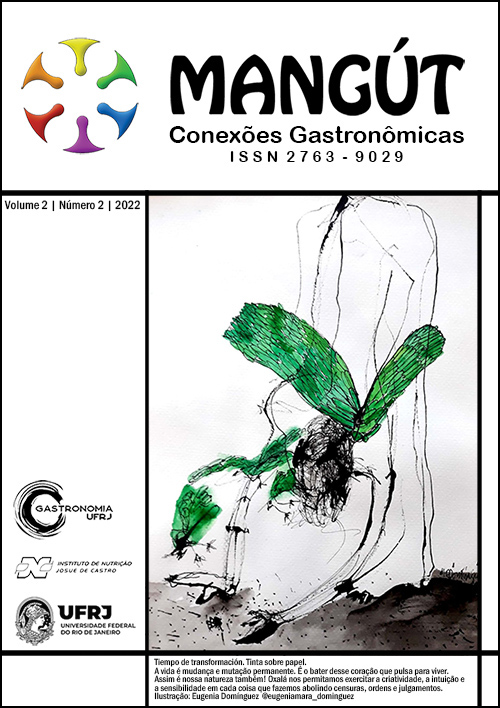Gastronomy and professional education in brazilian public schools: analysis of the National Catalog of Technical Courses
DOI:
https://doi.org/10.70051/mangt.v2i2.54973Keywords:
Gastronomy, Education, Public school, High school, Professional education,Abstract
The offer of training related to Gastronomy in public schools in Brazil takes place through Professional and Technological Education. The courses are publicized through the National Catalog of Technical Courses (CNCT), making this document essential for understanding the direction of professional training linked to the area. The present work aimed to analyze the technical courses related to Gastronomy by the Ministry of Education and Culture (MEC). For this purpose, this study consisted in a qualitative exploratory documentary research with the selection of all the courses that mention the keyword “gastronomy” in their descriptions, in order to understand the profile available and indication of the area of work practice. As a result, seven courses were found: Nutrition and Dietetics Technician, School Feeding Technician, Confectionery Technician, Bakery Technician, Viticulture and Enology Technician, Gastronomy Technician and Restaurant and Bar Service Technician. From the analysis, it was possible to understand that Gastronomy is related to courses mainly in the sphere of culinary production, it is noteworthy that the technical course in Gastronomy has an emphasis on management of gastronomic enterprises, while the technical course in School Meals is the first to include the possibility of acting in the field of Food and Nutrition Education in schools.
Downloads
Downloads
Published
Issue
Section
License
Copyright (c) 2023 Annah Bárbara Pinheiro dos Santos, Carlos Soares Barbosa

This work is licensed under a Creative Commons Attribution 4.0 International License.
Autores que publicam nesta revista concordam com os seguintes termos:
- Autores mantém os direitos autorais e concedem à revista o direito de primeira publicação, com o trabalho simultaneamente licenciado sob a Licença Creative Commons Attribution que permite o compartilhamento do trabalho com reconhecimento da autoria e publicação inicial nesta revista.
- Autores têm autorização para assumir contratos adicionais separadamente, para distribuição não-exclusiva da versão do trabalho publicada nesta revista (ex.: publicar em repositório institucional ou como capítulo de livro), com reconhecimento de autoria e publicação inicial nesta revista.
- Autores têm permissão e são estimulados a publicar e distribuir seu trabalho online (ex.: em repositórios institucionais ou na sua página pessoal) a qualquer ponto antes ou durante o processo editorial, já que isso pode gerar alterações produtivas, bem como aumentar o impacto e a citação do trabalho publicado (Veja O Efeito do Acesso Livre).



